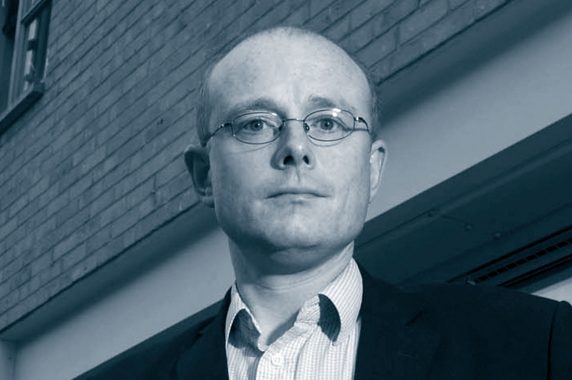Criminalising people who take illegal substances does not stop their sale or use, says Dr David Turner
During the pandemic, I had a remote meeting with Boris Johnson in one of his surgeries. It was in his capacity as our local MP; we were trying to persuade him to support the Dignity in Dying campaign.
At the end of the call – clearly wanting to talk about something different and aware that I am a doctor – he asked me what I would do about the UK’s drug problem.
My answer was unambiguous: ‘Legalise. Take control of the drug supply away from criminals and you will empty the prisons, which are next to useless in any case as a means of preventing the illegal drug trade.’
He replied: ‘We’ll have to look at that.’
Two years on, we have had two new Prime Ministers, and the illegal drug problem is worse than ever.
A recent BMJ article highlighted the escalating drug deaths in the UK. It reported that 3,060 deaths were related to the use of illicit drugs in England and Wales in 2021. Sadly, this is not surprising as rates have been increasing for the past 10 years.
I once worked as a prison GP, and it was apparent to me that criminalising and locking up people who choose to take substances that the Government deems illegal does next to nothing to prevent their sale or use. In fact, it is often easier to buy drugs inside prison than outside.
Yes, some people get clean and turn their lives around in prison. But these are mostly very motivated individuals who are serving longer sentences. Those given shorter sentences, even if they have the will, are often not in there long enough to receive the help they need.
The root of the problem, of course, is socio-economic deprivation. And as long as people are living lives so miserable that they want to escape from them, illegal substances will continue to be the way out for many.
Legalising drugs and giving the state control of their distribution would put criminal drug gangs out of business overnight. Yes, it would be an enormous undertaking, but the benefits – financially in savings for the criminal justice system and in improved health for those currently obtaining their drugs from criminals – would be huge.
The state distribution of clinical-grade drugs in known doses to registered individuals, tied to drug rehabilitation programmes and health screenings, with treatment for blood-born viruses and all the other illnesses long-term drug users are more likely to suffer from, may sound like a fairy tale. But how long can we persist with the delusion that imprisoning people who take illegal substances is doing anything useful?
Naysayers ask me if I think my approach would reduce illegal drug taking. In the short term, no.
But what is clear is that the war on drugs is irrefutably lost.
Dr Turner is a GP in Hertfordshire. Read more of his blogs here













Don’t disagree with you (but unlikely to happen). But if it did happen, would GPs be expected to be the service providers?
Re Decorum Est,……precisely, we are, after all, “best placed” to provide this service on the cheap, which would be enormously expensive to set up and run properly, just lumber PCNs with a target driven DES, job done. And small children would be crushed as GPs rushed to the exit door.
The biggest lie going on in the UK is illegal drugs is a socioeconomic issue. It isn’t just – there’s more than enough privileged, middle and upper class on cocaine and crystal meth. Just look – not far from the sertraline lot. Eyes are on the wrong place and users.
What does stop (some/most) people from using them is being made responsible for that choice. I.e, the risk of death/destitution. I.e, no welfare, no healthcare, etc. Support services i.e AA, NA are great, but they should be self-funded/charities, not the remit of the state.
What should remain criminalised are the suppliers/dealers, of course, and I hope we agree on that.
Yes , absolutely, dealing should still be illegal. If drugs could be obtained legally, safely and cheaply from a government controlled source, there would be little or no need for criminal gangs to supply them.
How many people in the uk buy illegally distilled alcohol? Very few because it can be obtained legally
The only problem with that David is the UK is half drunk and disorderly. So legal purchase doesn’t necessarily curtail destruction. World renowned Barmy army and Magaluf mayhem.
“safely”? That’s a loose use of the word.
I’m on your side actually, David, as I don’t believe prohibition works. People have agency, and the only solution is to leave them to be responsible for their own decisions…. completely.
As PD says, the costs from the destructive effects are still borne by the taxpayer. Hey, if you want to fund it yourself, David, feel free to. Leave me my freedom to choose not to pay for heroin prescribed by the state. As well as the benefits/housing/substitution program when people inevitably fall foul of their choices
MP: ‘You can’t compare harms from a legal activity
with an illegal one.’
Professor Nutt: ‘Why not?’
MP: ‘Because one’s illegal.’
Professor Nutt: ‘Why is it illegal?’
MP: ‘Because it’s harmful.’
Professor Nutt: ‘Don’t we need to compare harms to
determine if it should be illegal?’
MP: ‘You can’t compare harms from a legal activity
with an illegal one.’
repeats …
Prof Nutts seminal paper in the Lancet on harms to society of drugs and alcohol before he was sacked for speaking science rather than political rhetoric: https://www.ias.org.uk/uploads/pdf/News%20stories/dnutt-lancet-011110.pdf